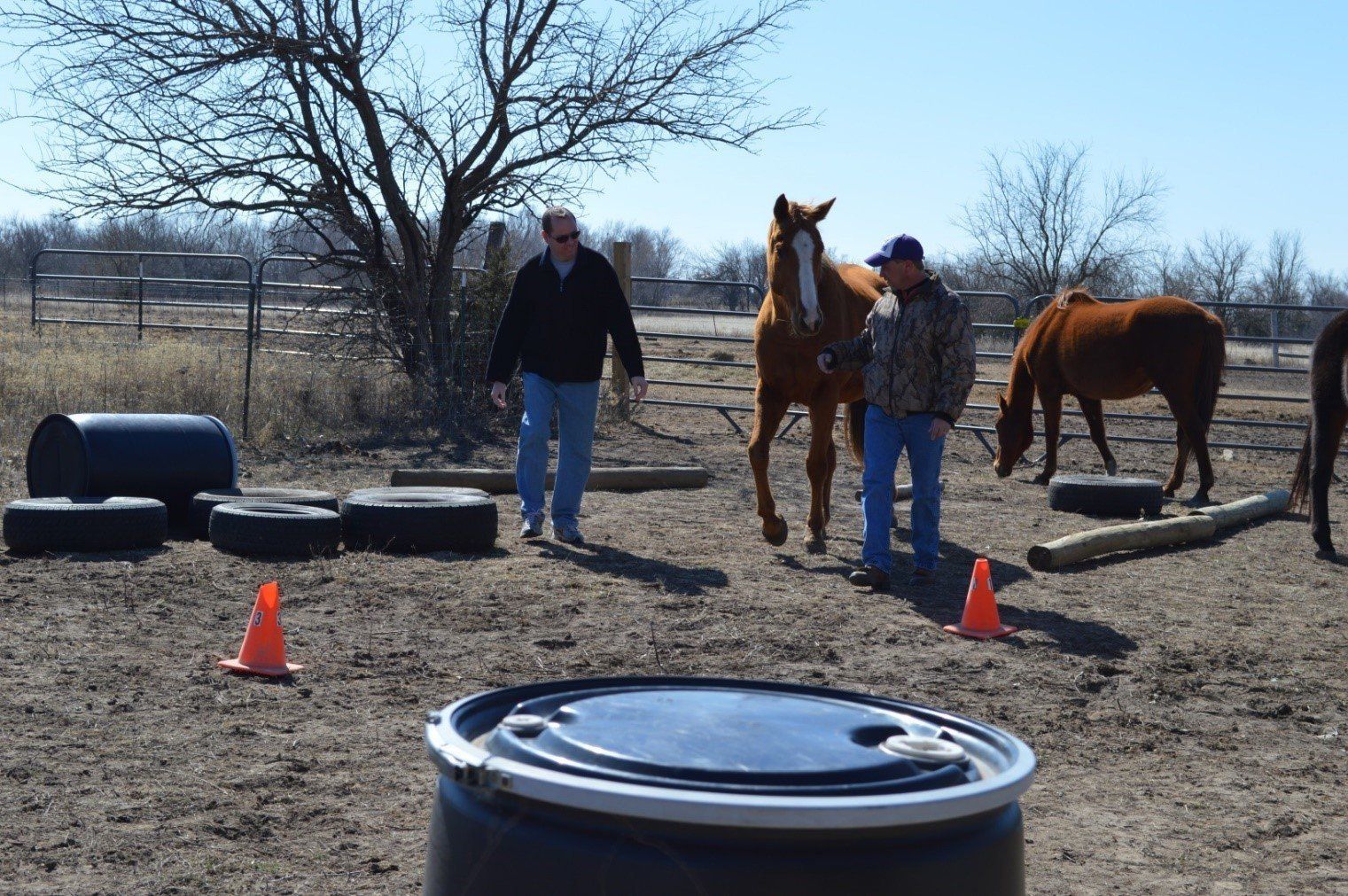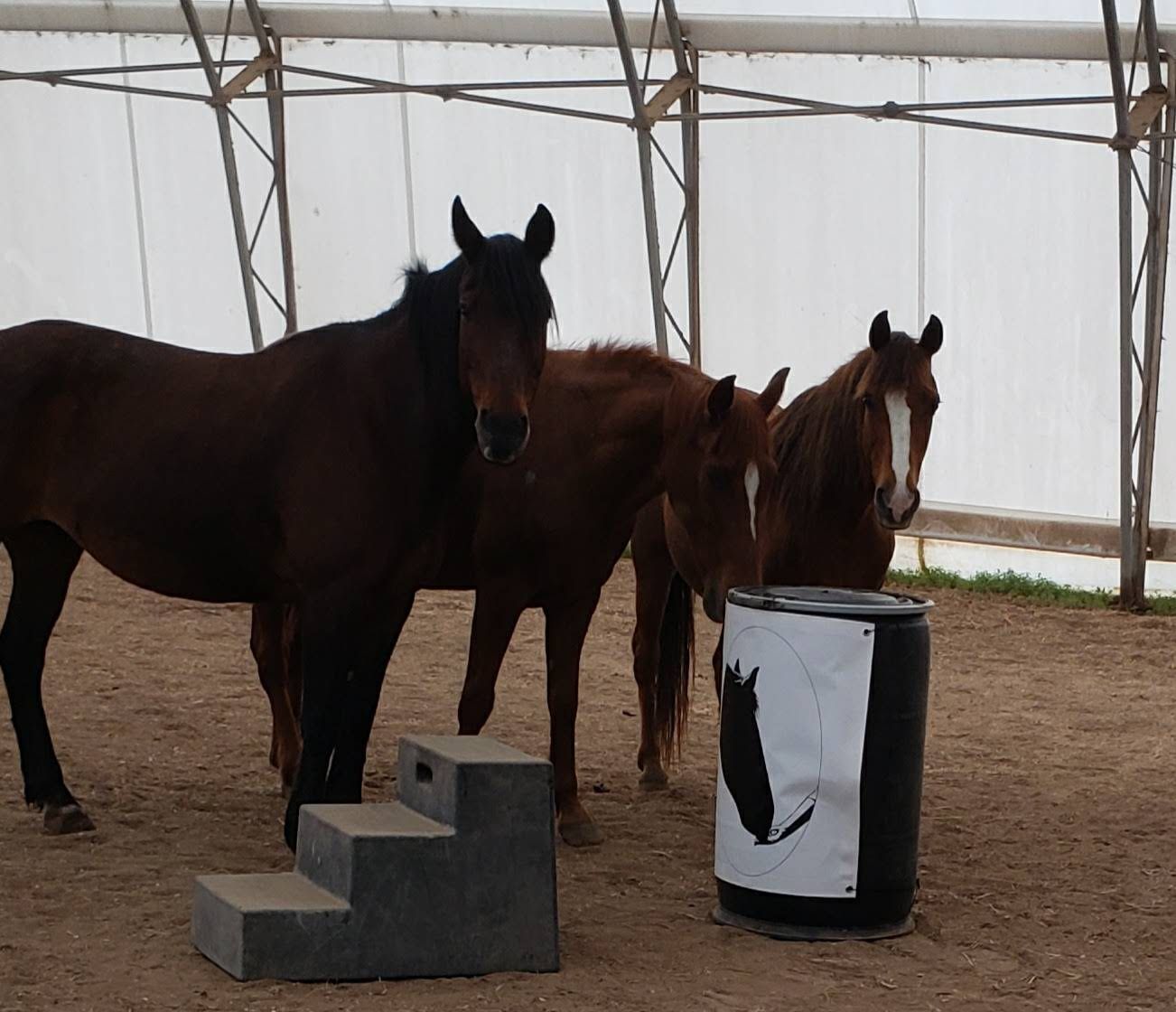

Training Days
8 am to 4 pm
Spirit Riding Derby KS
Dates to be determined for 2026
Orion Ranch Sanctuary Mulberry KS
Dates to be determined for 2026
To register for a class please contact Donna Marotta ealtcdm@yahoo.com
WHY EAL TRAINING
This is advance CIT training. The goals are to have self-control leading to patients, environmental awareness leading to empathy, and resilience leading to the ability to notice positive changes during any situation. All of this starts with understanding how the brain reacts during a critical incident.
EQUINE ASSISTED LEARNING TRAINING
Traditional scenario training is costly and time-consuming. It requires significant resources in terms of personnel, equipment, and time for set up and tear down. Computer programs can be costly to run and maintain. Virtual reality scenarios lack the conscious real-world experience of personal safety. Equine Assisted Learning (EAL) takes any scenario timeline and engages the conscious concern for personal safety, the mindset perceiving a threat, and the subconscious reacting to the mindset.
The subconscious works independently and dependently with the conscious part of the brain. The subconscious controls body functions we do not need to think about (independent). The subconscious also depends on the information coming from the mindset on any issues of one’s safety. The subconscious will not distinguish between what the mindset thinks and the information the conscious is taking in from the environment. That is why if we think (mindset) we could be in danger, or are connecting the present with a past event, the subconscious focus on that mindset. In EAL scenario training officers work with the horses form the ground. It is this positions that horses can make us feel venerable. This thought fully engages the conscious, mindset and subconscious parts of the brain to the fact “I could get hurt.” It is this kind of class that teaches the experience of adrenaline overload, recognizing it and stopping it before you lose all sense of protocol.
EAL Scenario Training
The conscious part of the brain filters information from the world around it. Am I safe, and any other needs and wants. The mindset decides how safe we are. If the mindset questions the safety factor of the environment the subconscious activates self-preservation. This is when tunnel vision occurs, and situation become volatile. Being able to control that instinct and make it a response to the situation is vital for the best positive outcome.
What is an EAL scenario? It is taking everyday objects: beach ball, cones, barrels, tubs, poles, and horses, labeling them stressors you can control and stressors you cannot control. The goal is to have the horse follow past stressors/objects without the horse stopping or breaking protocol.
EXAMPLE
A ball (conscious), labeled a gun (mindset), The subconscious believes it is a gun.
The Brain
Mindset labeled GUN and horse
Conscious knows BALL and horse
Subconscious believes GUN and horse
Reality Fantasy
Ball and horse Gun and horse
If the horse is moving away from the ball the subconscious is reacting to the thought of a GUN not the reality of a ball.
This is a one-day, seven-hour training class. Classes are mobile to your area through the mounted unit facility. Money is paid to the mounted unit for the use of the facility and three horses. Horses are at liberty through the entire class so this does not interfere with any of the horses' training.
For class information contact Donna Marotta ealtcdm@yahoo.com or call 316-641-4403
Self-Control Awareness and Resilience Training (SCAR)
Certified by National Certification Program
TM CEU's are accepted
Goals
- Develop internal resources to self de-escalate
- Balance the brain for better decisions during stressful situations
- Improve officer wellness and public trust
- Reduce turnover rate
How one person reacts or responds to a horse is how they react or respond to others in the community, at home, or work. Come see your reflection in a horse and practice Advance CIT training.

